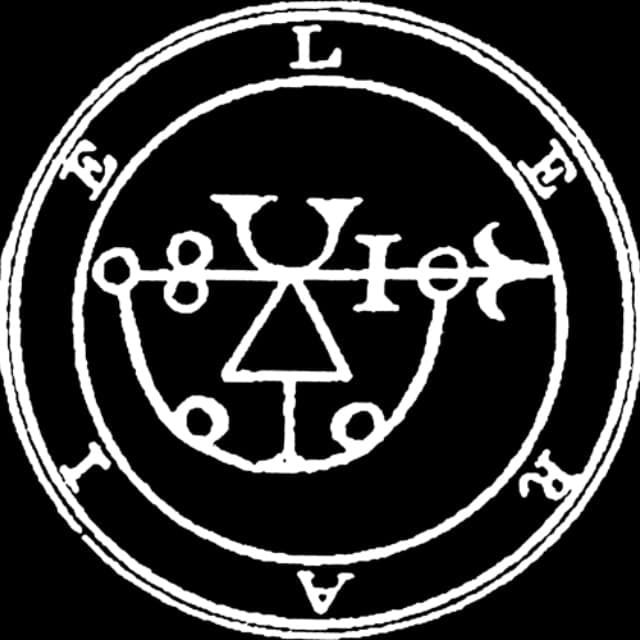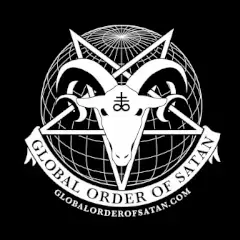Quite a few people over the years, whilst fully accepting that I was an atheist, were puzzled as to why I extended that to Satanism. There’s a variety of reasons for me. Firstly, whilst I’m not interested in theistic religion, I do like the ‘religion’ part of that phrase. The word ‘religions’ Latin root word is religiō which means an individual virtue of worship in mundane contexts; never as doctrine, practice, or actual source of knowledge. The ancient Roman’s used it not in the context of a relation towards gods, but as a range of general emotions which arose from heightened attention. So to me a religion is a personal thing, practiced by an individual or as part of a group that concentrates on the self and the realities of life. No gods necessary. That way of seeing religion fits in very well with atheistic Satanism, which is comprised of a lot of fiercely individual people who in this one aspect of their lives come together.
I also don’t have much time for theistic religions, particularly the ‘big 3’ Abrahamic ones (Islam, Christianity and Judaism). Learning about them as a child (In the UK, state schools are legally mandated to have Christian content/worship every day) it appalled me the amount of logical gymnastics people used to justify the hate and cruelties I saw exhibited in their religion in the name of what I saw as a petty, vainglorious, needy child of a diety. By the age of about 8 I knew I was an atheist but I also resented the fact I and my peers were repeatedly indoctrinated in this mess of contradictory, violent, difference-hating theism.
But at the same time, I also knew I quite liked the idea of community that an organised religion could offer. I just didn’t know what my community was. Then when I was around 11 years old, I read John Milton’s epic poem Paradise Lost and I read these lines;
From their own mouths. All is not theirs it seems;
One fatal tree there stands, of Knowledge called,
Forbidden them to taste. Knowledge forbidden!
Suspicious, reasonless. Why should their Lord
Envy them that? can it be sin to know?
Can it be death? and do they only stand
By ignorance? is that their happy state,
The proof of their obedience and their faith?
Oh, fair foundation laid whereon to build
Their ruin! Hence I will excite their minds
With more desire to know, and to reject
Envious commands, invented with design
To keep them low, whom knowledge might exalt
Equal with Gods. Aspiring to be such,
They taste and die: what likelier can ensue?
It is Lucifer who speaks these lines. In Milton’s two pronged tale of the Fall of Satan and the Fall of Humanity, Satan learns of Adam and Eve and resolves to destroy them via knowledge in order to have a measure of revenge on god. Milton was a product of his time and wrote his epic as a cautionary tale but when I read those lines I saw:
Knowledge forbidden!
Suspicious, reasonless. Why should their Lord
Envy them that? can it be sin to know?
Can it be death? and do they only stand
By ignorance? is that their happy state,
The proof of their obedience and their faith?
…
Hence I will excite their minds
With more desire to know, and to reject
Envious commands, invented with design
To keep them low, whom knowledge might exalt
And I thought, ‘He’s right! Why would a god make knowledge death? A sin?’ I agreed with Milton’s Satan that this was an envious command, made to keep humanity low. So now I had both words to put to my feelings and ideas and also a (literary but obviously non existent) figure to assign them too. Milton’s Satan embodied that idea of Adversary, someone who stands against. And Milton’s Satan didn’t stand silently, he offered humanity knowledge, or at least knowledge of how to gain knowledge. Humanity by and large values knowledge. It’s seeking after knowledge that has given us advancements (and, yes, detriments too) that have given us the potential and ability to live longer, be healthier, find out things about the Universe we live in. Milton’s Satan, it seemed to me, gave us nothing less than the desire to pursue science, whereas god wanted us to stone people to death that didn’t worship him and only him.
So, from that point on, I was both an atheist in the sense that I don’t believe in gods, demons, ghosts or monsters but also a Satanist in order to not only passively not believe but also to be openly adversarial to beliefs that oppress people. For a very long time, I genuinely thought I was the only person who had this mix of atheism and Satanism but then I first found The Satanic Temple and then, when I found out just how problematic their leadership is, I walked away and then I eventually found The Global Order Of Satan, where there aren’t awful people and the desire to effect change and help both ourselves as individuals and stand with people being oppressed is the core of our religion.

